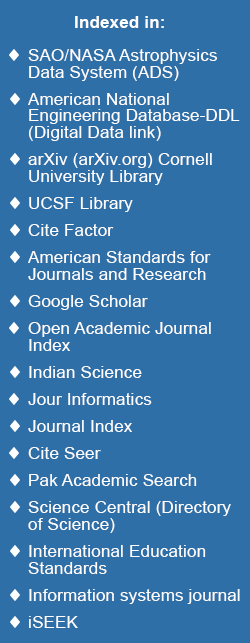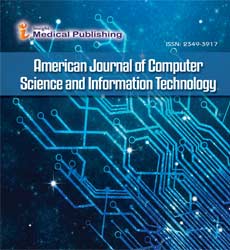ISSN : 2349-3917
American Journal of Computer Science and Information Technology
Evolution and Advancements in Operating Systems: Enhancing Efficiency and Security
Elias Birhane*
Department of Computer Science, Jigjiga University, Jigjiga, Ethiopia
- *Corresponding Author:
- Elias Birhane
Department of Computer Science, Jigjiga University, Jigjiga,
Ethiopia,
Email: eliasbirhane78@yahoo.com
Received date: April 04, 2023, Manuscript No. IPACSIT-23-16914; Editor assigned date: April 06, 2023, PreQC No. IPACSIT-23-16914(PQ); Reviewed date: April 21, 2023, QC No. IPACSIT-23-16914; Revised date: May 01, 2023, Manuscript No. IPACSIT-23-16914 (R); Published date: May 08, 2023, DOI: 10.36648/ 2349-3917.11.5.2
Citation: Birhane E (2023) Evolution and Advancements in Operating Systems: Enhancing Efficiency and Security . Am J Compt Sci Inform Technol Vol: 11 No: 5: 002.
Introduction
Operating Systems (OS) form the foundation of modern computing systems, providing essential services and managing hardware resources. Over the years, operating systems have evolved significantly to meet the increasing demands of users and the advancements in technology. This research article explores the evolution of operating systems, focusing on two key aspects: efficiency and security. Historically, operating systems were designed with monolithic architectures, where all the services and functionalities were tightly integrated into a single kernel. This approach posed challenges in terms of complexity and maintainability. However, the advent of microkernel architectures revolutionized the OS landscape. Microkernels separate the kernel into small, modular components, providing a leaner and more flexible foundation. This design enables easy customization, improved fault tolerance, and enhanced system stability.
Virtualization and Containerization
The rise of virtualization and containerization technologies has significantly impacted the way operating systems are utilized. Virtualization enables multiple operating systems to run simultaneously on a single physical machine, enhancing resource utilization and simplifying management. Containerization, on the other hand, allows for lightweight and isolated execution environments, enabling the efficient deployment of applications across different platforms. These advancements have facilitated the development of cloud computing and scalable distributed systems. To improve system performance and responsiveness, modern operating systems have embraced multithreading and concurrency. By utilizing multiple threads, an OS can efficiently manage multiple tasks simultaneously, maximizing the utilization of available resources. Concurrent execution enables the execution of multiple instructions concurrently, thereby reducing idle time and enhancing overall system throughput. Techniques such as thread pooling and task scheduling algorithms play a crucial role in optimizing the efficiency of modern operating systems. With the proliferation of mobile devices and battery-powered systems, power management has become a critical aspect of operating system design. Operating systems employ various power-saving techniques, such as CPU frequency scaling, dynamic voltage scaling, and device power management, to optimize energy consumption. Advanced power management algorithms ensure that resources are utilized efficiently while minimizing power consumption, thereby extending battery life and improving user experience.
Advancements in Operating System Security
Operating systems now incorporate mechanisms like Secure Boot, which ensures the integrity of the boot process by verifying the authenticity of firmware and operating system components. Trusted Execution Environments (TEEs) provide isolated and secure execution environments, protecting sensitive data and code from unauthorized access. Technologies like Intel's Software Guard Extensions (SGX) and ARM TrustZone enable the creation of secure enclaves, fostering secure computing and protecting against various security threats. Modern operating systems employ robust access control mechanisms to enforce security policies and restrict unauthorized access to resources. User authentication, authorization, and file permissions play a vital role in ensuring data integrity and confidentiality. Sandboxing techniques isolate processes and applications from each other, preventing the spread of malware and limiting the potential impact of security breaches. Virtualization technologies also contribute to improved security by providing isolated environments for running untrusted applications. The evolution of operating systems has been driven by the need for enhanced efficiency and security. From monolithic architectures to microkernels, and from virtualization to containerization, operating systems have continually adapted to meet the changing requirements of users and technology advancements. Improvements in efficiency through multithreading, concurrency, and power management have resulted in more responsive and energy-efficient systems. Simultaneously, advancements in security through secure boot, trusted execution environments, access control, and sandboxing have strengthened the protection of sensitive data and mitigated security risks. As technology continues to evolve, operating systems will play a critical role in enabling efficient and secure computing environments.

Open Access Journals
- Aquaculture & Veterinary Science
- Chemistry & Chemical Sciences
- Clinical Sciences
- Engineering
- General Science
- Genetics & Molecular Biology
- Health Care & Nursing
- Immunology & Microbiology
- Materials Science
- Mathematics & Physics
- Medical Sciences
- Neurology & Psychiatry
- Oncology & Cancer Science
- Pharmaceutical Sciences
